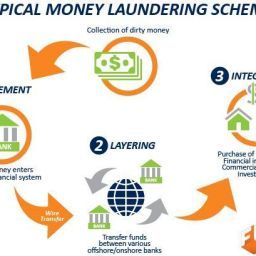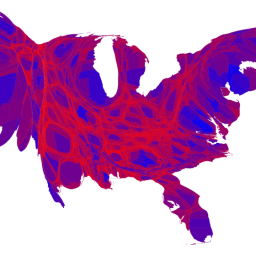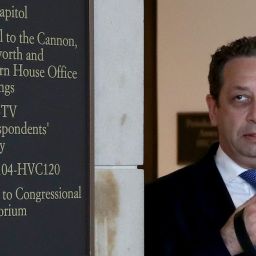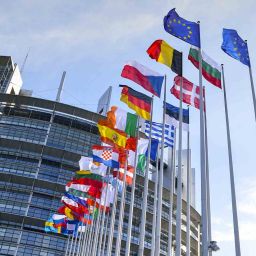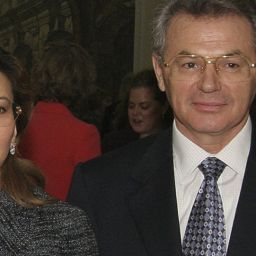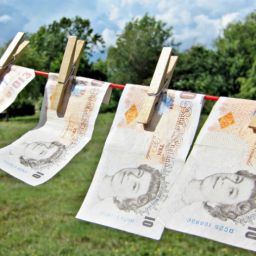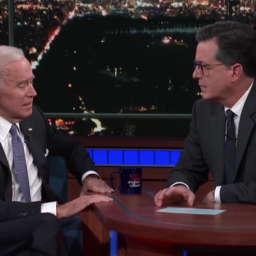The news, reported in the Washington Post, that Donald Trump used cash for many of his real estate transactions in the decade before he became president, has raised eyebrows. As David Fahrenthold, one of the reporters on the Post story, told Slate, “I don’t think that lenders have a lot of experience with people who are buying huge things in cash.” At this point, we don’t know where the cash came from—this is what Fahrenthold says he and his team are looking into next. But with people speculating (without evidence) about possible money laundering, it’s worth trying to understand what exactly money laundering is, and what role it plays in the real estate world.
To find out, I recently spoke by phone with Peter D. Hardy. He is a partner in the white-collar defense group at the law firm Ballard Spahr, a former federal prosecutor, and the curator of Ballard Spahr’s blog Money Laundering Watch. An edited and condensed version of our conversation is below.
Isaac Chotiner: Let’s start here: What is money laundering, and what makes a particular transaction illegal?
Peter D. Hardy: Money laundering involves a financial transaction—which can be very, very broad—coupled with the source of the underlying funds being from what’s called a “specified unlawful activity.” That’s a term of art from the statute, but to put it more colloquially, it has to be money from a crime. Basically, it is almost any crime that generates proceeds. So, the underlying crime is committed; it generates proceeds; the proceeds are used in a financial transaction—which, again, is very, very broad—and then the key is, in terms of potential criminal liability, and I am going to do a little footnote to this, a little caveat because there are two statutes. There is 18 U.S.C 1956, and there is 18 U.S.C. 1957.
For 1956, you need knowledge that the transaction is using proceeds from a crime. You don’t even need to know necessarily what crime it is; just that it is dirty money, so to speak. And then that it is done with the requisite intent. There are a couple options in the statute: It includes an intent to promote the underlying crime. So let’s say if you are a drug dealer, it would be done to buy more drugs and further the drug conspiracy, for example. It could be done to conceal the source; I think that is what most people think of when they think of money laundering—funneling it through shell corporations to disguise what is going on. It could be done to avoid a reporting requirement, like a currency transaction report.
For 1957, here is the wrinkle, which is why money laundering is so broad in a way that most people don’t realize how broad it is. The 1957 statute does not require any specific intent. All it requires is knowledge and a transaction involving over $10,000. It could be the most mundane, transparent transaction in the world with everyone’s name up there: “Pablo Escobar is going to buy a Mercedes.” If it is dirty money, and over $10,000, and those involved know it, that’s money laundering.
And if it is under $10,000?
Not under 1957. The trade-off is that there is no specific intent, but the threshold is that it is over $10,000. For 1956, it can be under $10,000, but you need specific intent. Theoretically it could be a dollar, but there is no monetary requirement.
What if I get involved with people who have a shady reputation, and I get money from them, and plead ignorance? Is that a legal defense?
There are two things baked into your question. Dealing with shady people does not ipso facto mean that the transaction involves dirty money. It has to actually involve dirty money. Before we even get to knowledge, there is the predicate of: Is this the proceeds of a specified unlawful activity? And if the answer to that is no, even if you are dealing with shady people, then that is not money laundering. But let’s assume that it does in fact include dirty money. Then you get to knowledge. And this is the primary issue for professionals, like lawyers or real-estate agents. The government has the option, and they often use it in these sorts of situations, of the willful blindness doctrine. The willful blindness doctrine is kind of complicated, but to really dumb it down …
I’m dumb on this, so that is helpful.
No, no, no. It is actually really complicate,d and you could spend hours talking about its permutations. If you read jury instructions, what it is not supposed to be is woulda coulda shoulda. It is not supposed to be, “You should have known, but you didn’t check.” It is supposed to be another way of proving actual knowledge. That is hard for a lot of people, including sophisticated judges and lawyers to hold in their heads because it is pretty slippery. So essentially if you have reason to know of a fact and you take affirmative action to avoid being further confronted by the existence of that fact, that can constitute willful blindness.
How does money laundering usually work in the real estate world?
I don’t know that there is any magic formula. Kind of like Tolstoy, every money laundering transaction is different. There are a variety of ways it can happen. Certainly I know that [Treasury’s] Financial Crimes Enforcement Network is concerned about the use of entities to shield what are called beneficial owners. So if perhaps one wants to do the traditional, lay-person’s version of money laundering, in terms of concealing the source, you can try to set up a series of entities the point of which is to disguise the ultimate source of the funds. That gets harder, or the government is trying to make it harder to do, through a series of regulations.
But getting back to 1957, it doesn’t have to be quite so elaborate. It could be money laundering even if it is completely transparent if it is over $10,000 and dirty money.
What are things prosecutors look for when seeking signs of money laundering?
It used to be if you didn’t want a mortgage and it was all cash—by that I mean wire or check or whatever—that used to be suspicious. I am not saying that it is completely free of suspicion, but that is more common these days. Not having a mortgage is perhaps not the red flag it used to be because there are a lot of rich people out there. But that’s still there. I do think that despite my going on about how money laundering is broad and doesn’t have to be about concealment: Any effort at concealment is definitely going to be latched onto by the government.
What do you mean by concealment?
Using nominee accounts, trying to disguise the ownership or the source, whether it is setting up a company in the name of my great nephew and it is really my money, or any efforts like that are going to be regarded by the government and I think most people like your average juror as an indicator that there is laundering going on. But you still have to show at the end of the day that it is dirty money, because if it is not, it ain’t money laundering. But concealment is definitely the hallmark.
Why is real estate seen as a fertile business for money launderers?
Because it is a traditional transaction. Buying real estate is something that a lot of people do and is regarded, generally speaking, as a good investment. The United States real estate market has been very, very hot. So from a pure economic standpoint it makes sense. And it’s a vehicle where if you have a lot of money, or a lot of proceeds that you want to unload, it is a pretty good receptacle to do so. It is just kind of handy. And if you are asked, it is easy to provide a seemingly innocuous explanation, which is, “I am investing in real estate along with many other people.”
The Key Signs of Money Laundering, According to a Former Prosecutor
